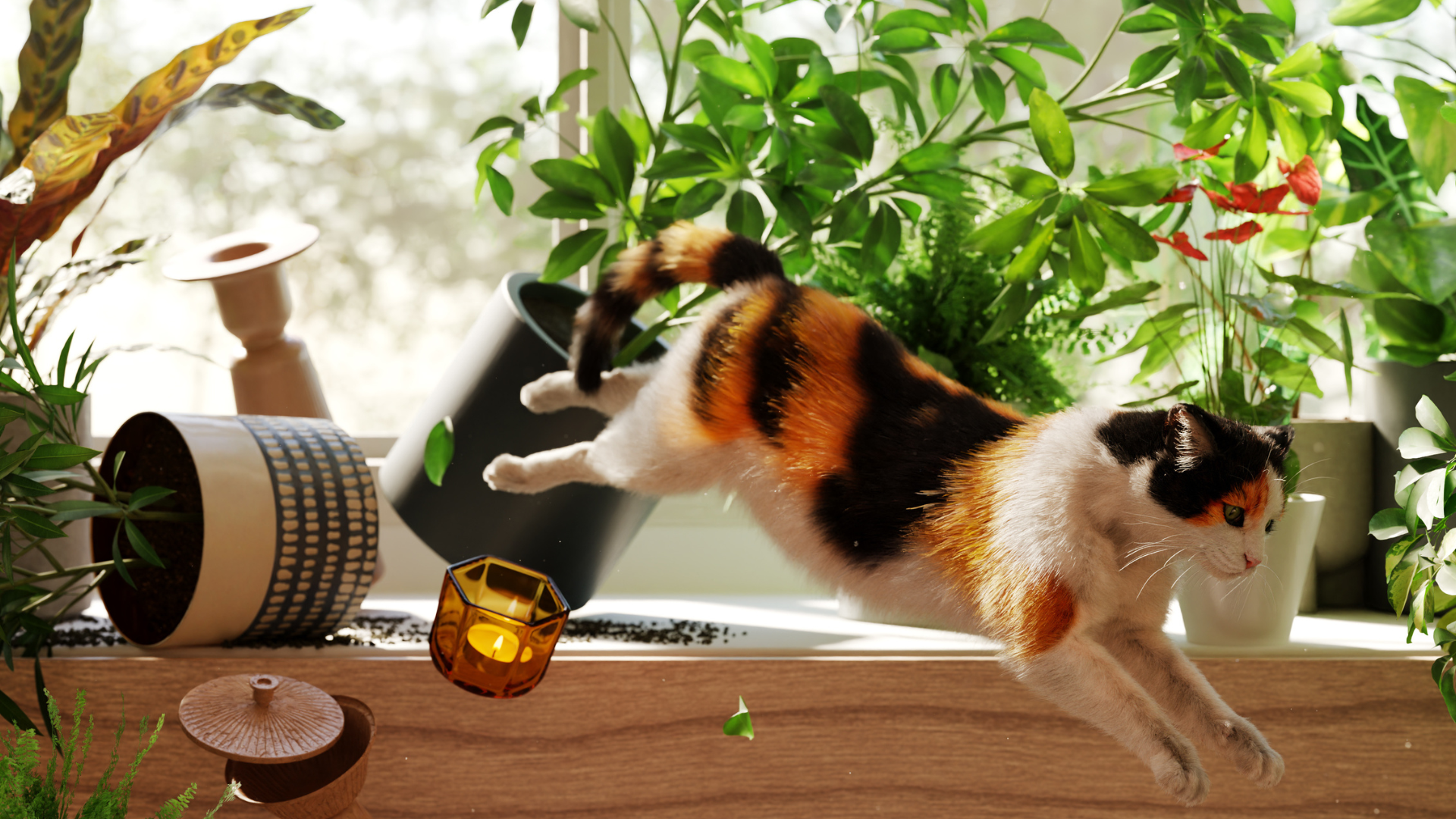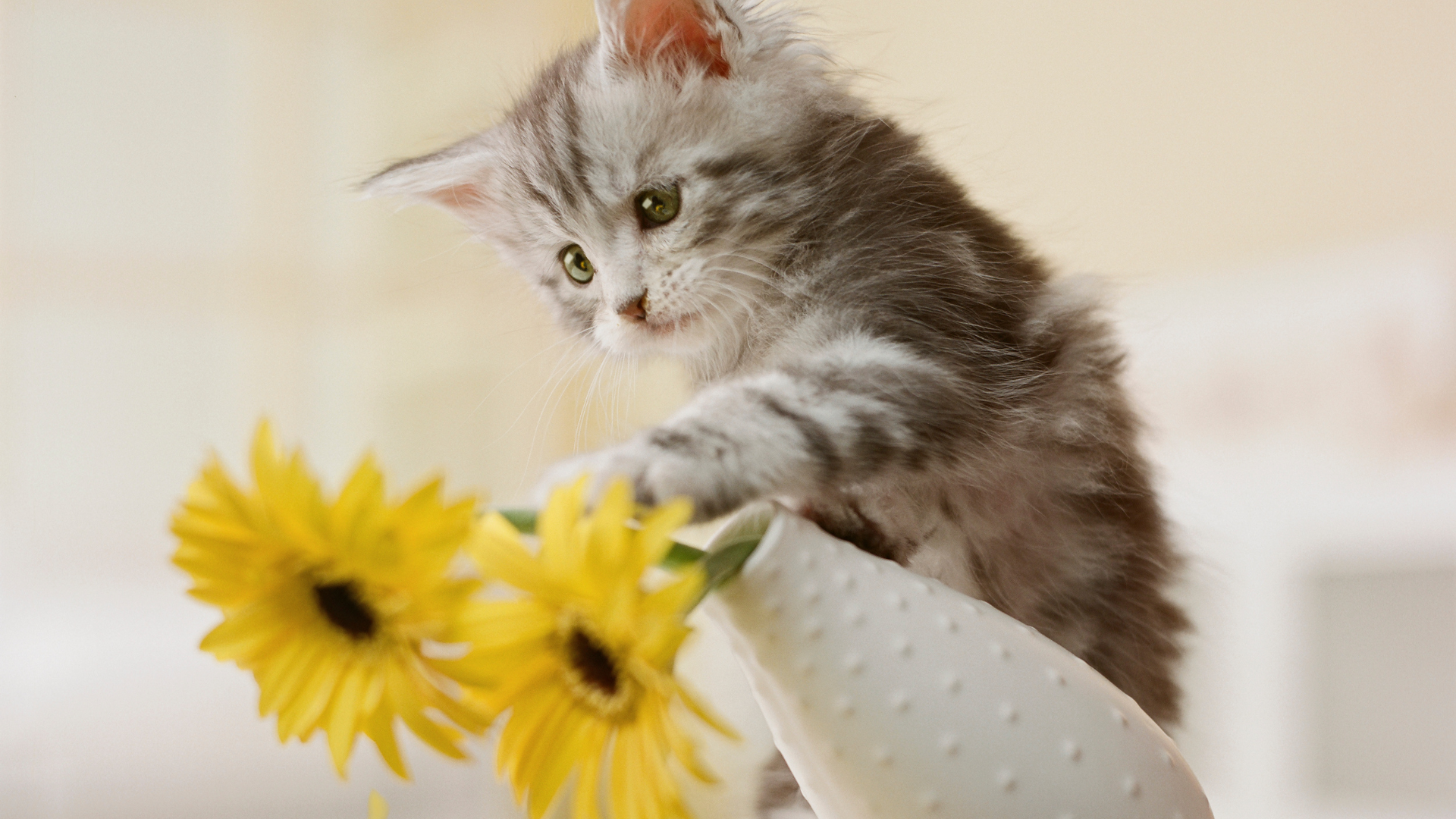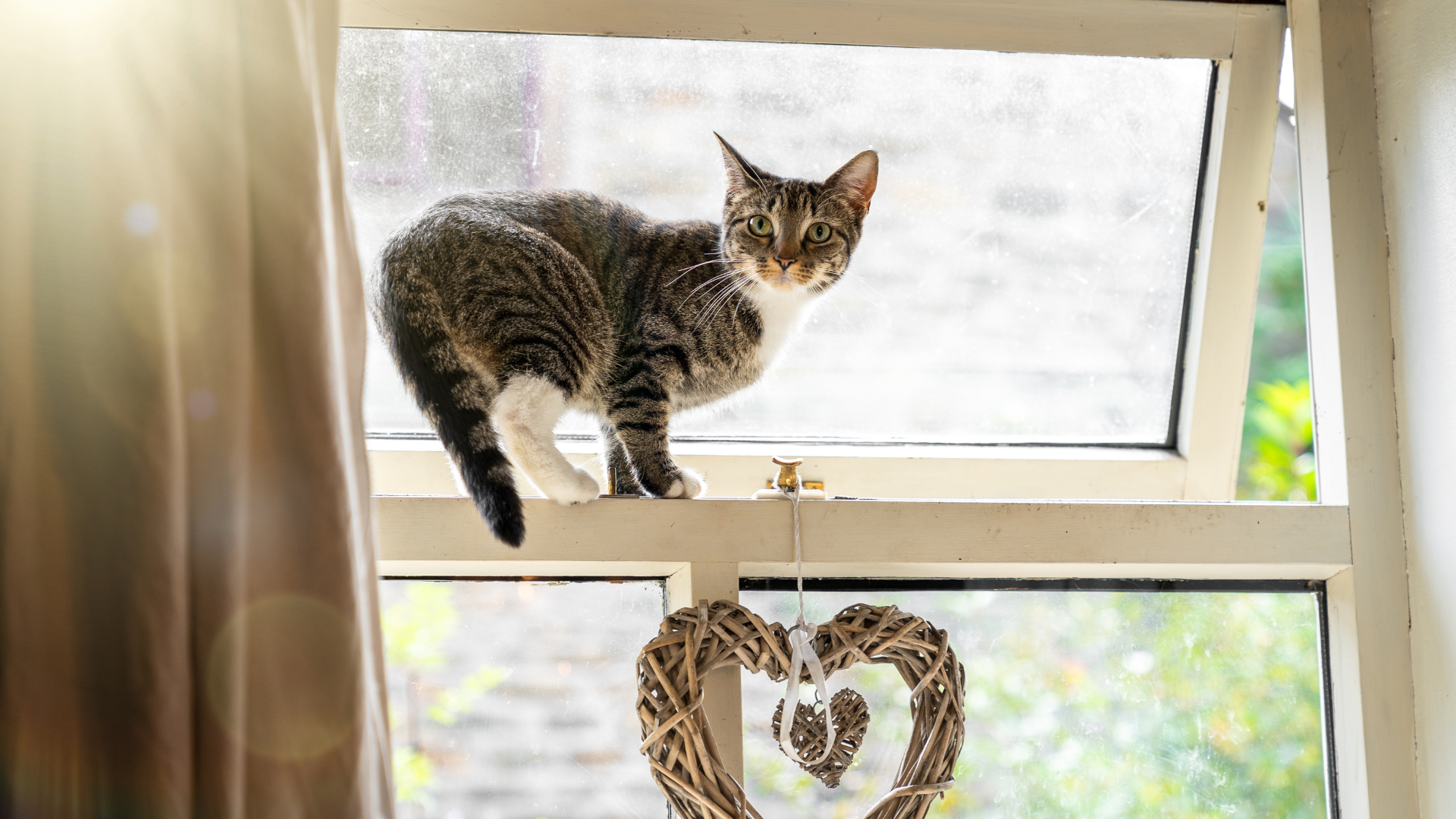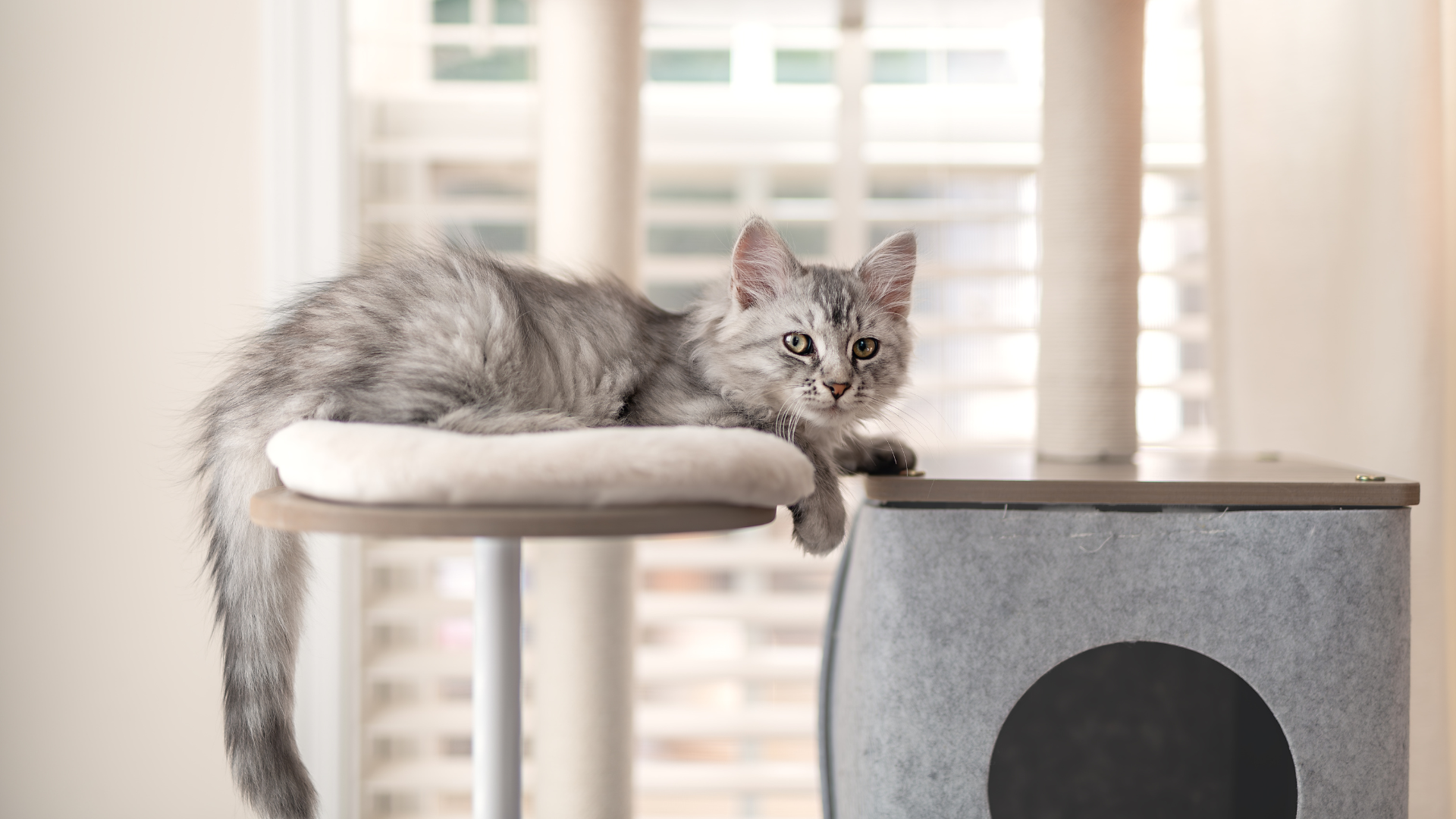
Learning how to cat-proof your home is an important part of pet parenthood. Not only will it keep your feline safe from dangers, like cables and poisonous plants, but it also ensures your home doesn't get damaged.
Before your cat arrives, you'll need to stock up on all the essentials, like one of the best self-cleaning litter boxes, a scratching post, and a comfortable bed. You'll also need to consider whether they'll be an indoor vs outdoor cat, as the two have slightly different requirements.
Your cat might feel anxious about a new environment, so you can plug in a pheromone diffuser or use a calming cat collar to help them to relax.
We understand that there's a lot to think about, so we've completed a full checklist for you to follow below or bookmark for later:
How to cat-proof your home: Safety tips
1. Secure furniture to the wall
Cats love to climb on top of things, so make sure that any wobbly furniture is secured to the wall.
2. Hide your cables
Cats also love to play with long, dangly things (like chargers and cables), so keep these out of their sight. This is a hazard for strangling and electrocution. You could place them under a rug, behind furniture, or buy a cable runway to neatly tuck them into.
3. Check washing machines and tumble dryers before use
Soft and warm, washing machines and tumble dryers are perfect resting spots in our cats' eyes. So, make sure your fur friend isn't inside before you put them on.
4. Hide fragile objects
Until you get to know your new kitty, keep any fragile objects out of reach to avoid them being knocked over.

5. Hide household cleaning products
Make sure you keep cleaning products out of sight and locked away; these can be lethal if they're ingested and some have a sweet smell that attracts cats.
6. Close your bin
Cats will climb inside anything they can, so make sure you close your bin lids to avoid them getting trapped inside and suffocating. The same goes for toilet seats and plastic bags.
7. Keep kitchen cabinets closed
Eggs, chocolate, and milk are just some of the human foods that are poisonous to cats. Close your kitchen cabinets to avoid them eating anything they shouldn't. If you're preparing food, make sure you clean off any scraps or crumbs promptly.
8. Check your windows and doors are secure
Close your windows and doors to prevent any unwanted escapes. Even if you plan to let them outside eventually, kittens need to stay in until they've had their vaccinations and are settled.

9. Tie up blind cords
Blind cords are irresistible to our feline friends, so you'll want to tie these up or attach them to a hook.
10. Remove toxic plants and flowers
Plants and flowers, like aloe vera and lilies, are toxic to cats and should be removed from your home and your garden. Want to learn how to stop a cat from eating plants? In this feature, we explain how and include a list of all the toxic plants to cats.
11. Hide mothballs
If your cat ingests a mothball, it can cause fatal poisoning. Make sure these are safely stored in a closed drawer at all times.
12. Put away hair bands, yarn and string
Cats might enjoy playing with hair bands, yarn, and string, but they're actually very dangerous when they're ingested. This feature explains why you shouldn't let your cat play with yarn. Instead, offer them the best cat toys to keep them entertained and active.
How to cat-proof your home: Essentials to buy
Before you bring your new cat home, make sure you have these essential items:
- Cat food: To keep your kitty happy and healthy, you'll need some of the best cat food.
- Food and water bowl: Cats like to keep their food and water separate, so make sure you have a bowl for each and keep them apart.
- The best cat scratching post: This will prevent them from ripping up your furniture, and will keep their claws in good shape.
- Cat carrier: This will come in handy for emergency vet visits.
- Vertical perches or the best cat tree: Cats enjoy climbing and watching the world from an elevated, private place.

- Litter box, litter and scoop: Cats are clean animals and need a sanitary place to do their business.
- The best microchip cat flap: If you have an outdoor cat, you'll want to invest in a microchip cat flap. They help to keep unwanted visitors away and let you set curfews for your cat.
- Cat toys: You need a good selection of toys as cats need to be played with three to four times a day for 15 to 20 minutes. You might want to check out the best automated cat toys to make things easier.
- The best cat bed: Kittens sleep up to 22 hours a day, so they'll need a comfortable resting spot to retreat to.
- Pheromone diffuser or spray: These mimic the pheromones that a mother cat releases which can help with anxiety in cats.
Thinking of adopting a kitten? Here's everything you need to know before bringing them home. Wondering, 'Can you train a cat?' This feature reveals the answer.

.jpg?w=600)





